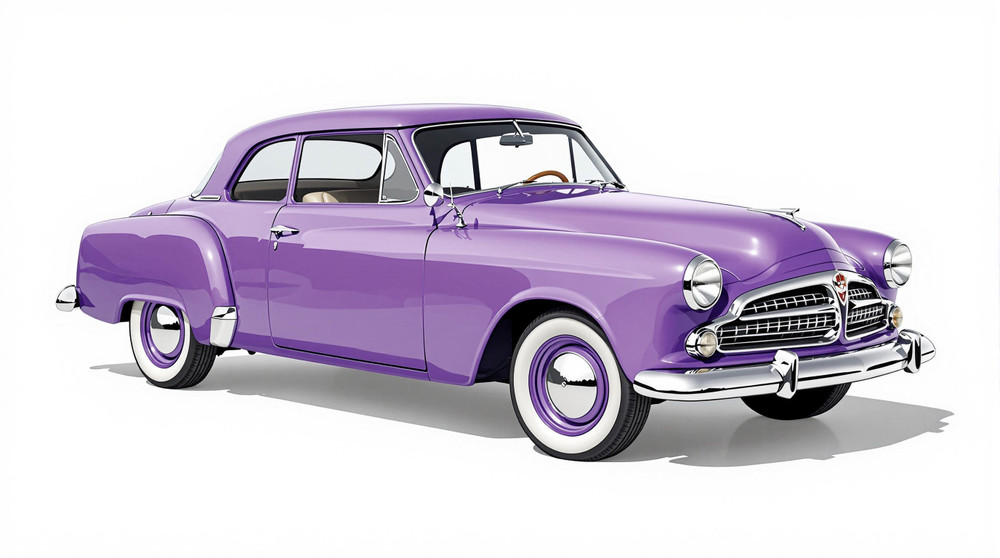Image of 1950 Studebaker Champion, Note: These illustrations use artistic license and may differ from actual historical models.
Performance Metrics
Fundamental Metrics
Emotional Appeal
MMP Rating
| Engine Specifications | |
|---|---|
| Engine: | Inline 6 |
| Displacement: | 169.6 cu in (2.8 L) |
| Horsepower: | 85 hp |
| Torque: | 138 lb-ft |
| Compression Ratio: | 7.0:1 |
| Ignition System: | Battery Ignition |
| Cooling System: | Liquid cooled |
| Performance Specifications | |
| 0-60 Time: | Estimated 20 seconds |
| 1/4 Mile Time: | Not available |
| Top Speed: | 80 mph |
| Transmission and Drive | |
| Drive Type: | Rear wheel drive |
| Transmission Type: | 3-speed manual with optional overdrive |
| Fuel and Efficiency | |
| Fuel System Type: | Carburetor |
| MPG: | Estimated 20-25 mpg |
| Dimensions and Brakes | |
| Brakes: | Drum brakes |
| Wheelbase: | 113 in (2,870 mm) |
| Weight: | 2,700 lbs |
Note: Specifications for classic cars are given to the best of our ability, considering the limited and variant data available.
Introduction
The 1950 Studebaker Champion stands as a testament to post-war American ingenuity and design flair. Born from the innovative minds at Studebaker Corporation, a company with roots reaching back to the days of horse-drawn wagons, this vehicle emerged as a symbol of the era's optimism. The Champion was not just another car; it was part of the American dream on wheels, capturing the spirit of a nation on the cusp of a modern age. A notable moment in its storied history is its role in pioneering fuel-efficient vehicles during a time when gas-guzzlers ruled the roads.
Design and Innovation
The exterior styling of the 1950 Studebaker Champion was nothing short of revolutionary. Its bullet-nose front end, inspired by fighter aircraft, gave it an appearance that was both futuristic and aerodynamic. The sleek lines and pronounced rear fenders created an illusion of motion even when the car was at a standstill. Inside, occupants were greeted with a cabin that emphasized simplicity and functionality, with materials that offered durability and comfort without excess opulence. Technologically, the Champion boasted advancements such as automatic hill holder and overdrive transmission options. Popular color choices included rich blues and classic blacks, while body styles ranged from sedans to coupes, with the Starlight Coupe being particularly iconic for its panoramic rear window.
Historical Significance
The 1950 Studebaker Champion carved out its niche by offering affordability without sacrificing style or innovation. It diverged from the bulky designs of its contemporaries, influencing a move towards more streamlined automobiles. The Champion's economical operation helped it stand out during a time when fuel efficiency was beginning to gain importance among American consumers.
Performance and Handling
Under the hood, the Champion came equipped with a modest inline-six engine that delivered adequate power for its class. While not designed as a speed demon, it achieved respectable top speeds and could go from 0-60 mph in a timeframe that was competitive for its day. On various terrains, drivers appreciated its smooth ride and competent handling, particularly noting how well it managed on winding roads. The driving experience was characterized by the distinctive hum of its engine and an overall sense of reliability.
Ownership Experience
The 1950 Studebaker Champion found its place as an all-rounder in post-war America. It served faithfully as a daily driver for many families while also shining on the show car circuit due to its unique design. Its mechanical simplicity meant that maintenance was straightforward for most owners, ensuring that this Champion remained in fighting form through regular care.
Fun Facts
This classic car boasts several fun facts: certain models were affectionately nicknamed "bullet nose" due to their distinctive front end; some Champions found their way into celebrity garages; and although not known for setting speed records, they certainly set standards for economy during their time. Despite criticisms about being underpowered compared to some rivals, the Champion's charm has endured.
Collector's Information
Today, collectors value the 1950 Studebaker Champion for its unique design and historical significance. While production numbers were relatively high for the era, surviving examples in good condition are increasingly rare. Values can vary widely but typically range from $10,000 to $40,000 depending on condition and originality. The market has shown appreciation for well-maintained Champions over time.
Conclusion
The 1950 Studebaker Champion remains an emblematic piece of automotive history that captured America's post-war zeitgeist with its bold design and practical engineering. Its legacy endures in the hearts of classic car enthusiasts who celebrate this icon not just for what it was but also for what it represented—an optimistic vision of the future built on a foundation of tradition.
1950 Studebaker Champion Catalog of Parts
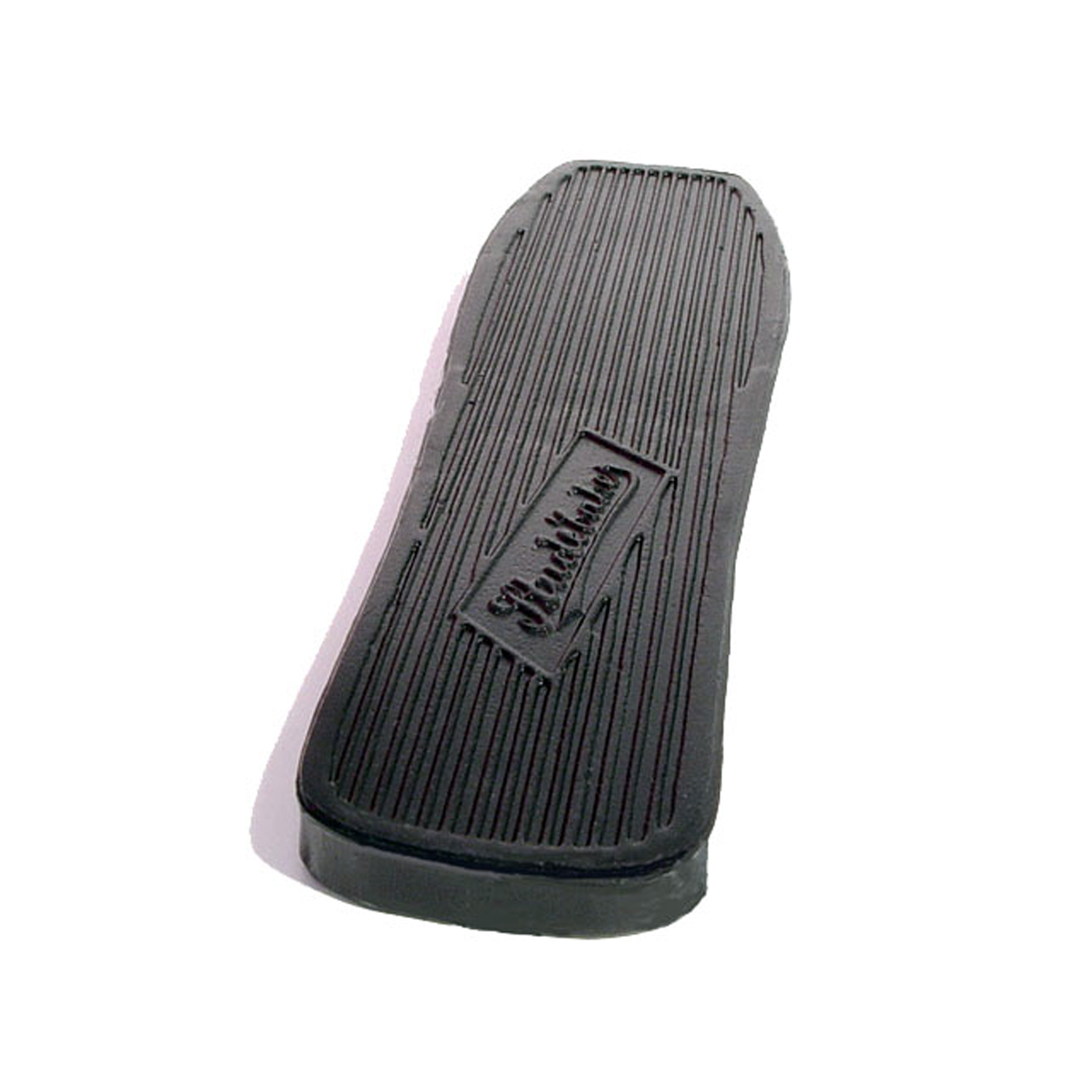 1950 Studebaker Champion Accelerator Pedal Pad, 2-3/8" X 9", Each-AP 22Accelerator Pedal Pad, 2-3/8" X 9", Each
1950 Studebaker Champion Accelerator Pedal Pad, 2-3/8" X 9", Each-AP 22Accelerator Pedal Pad, 2-3/8" X 9", Each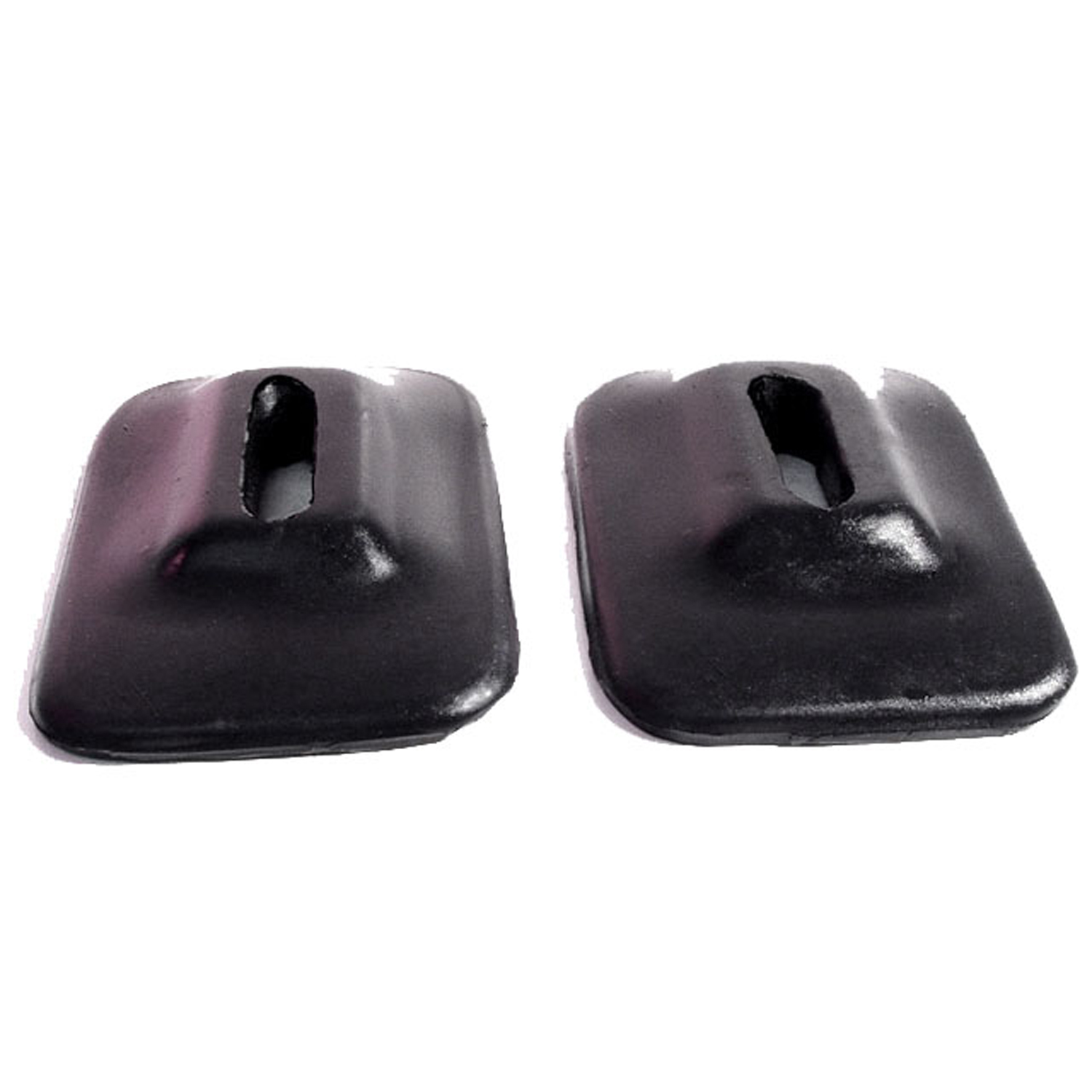 1950 Studebaker Champion Front and Rear Bumper Arm Grommets-BG 45Front and Rear Bumper Arm Grommets. 2-3/4" wide X 4-1/8" long, with 1-5/8" long inner slot. Pair
1950 Studebaker Champion Front and Rear Bumper Arm Grommets-BG 45Front and Rear Bumper Arm Grommets. 2-3/4" wide X 4-1/8" long, with 1-5/8" long inner slot. Pair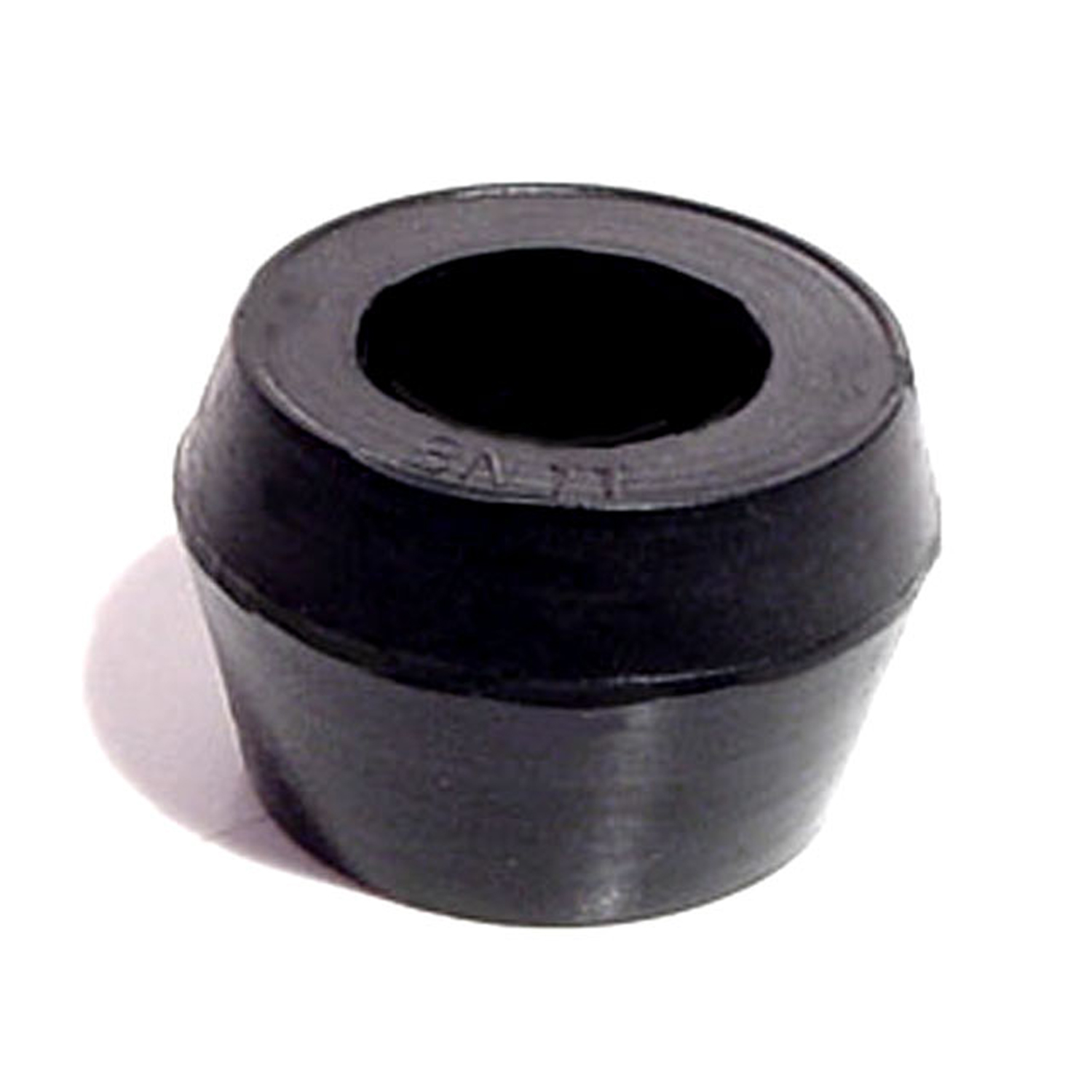 1950 Studebaker Champion Shock Absorber Grommet. 1" bottom O.D-BN 11Shock Absorber Grommet. 1" bottom O.D., 3/4" high, with 5/8" I.D. Each
1950 Studebaker Champion Shock Absorber Grommet. 1" bottom O.D-BN 11Shock Absorber Grommet. 1" bottom O.D., 3/4" high, with 5/8" I.D. Each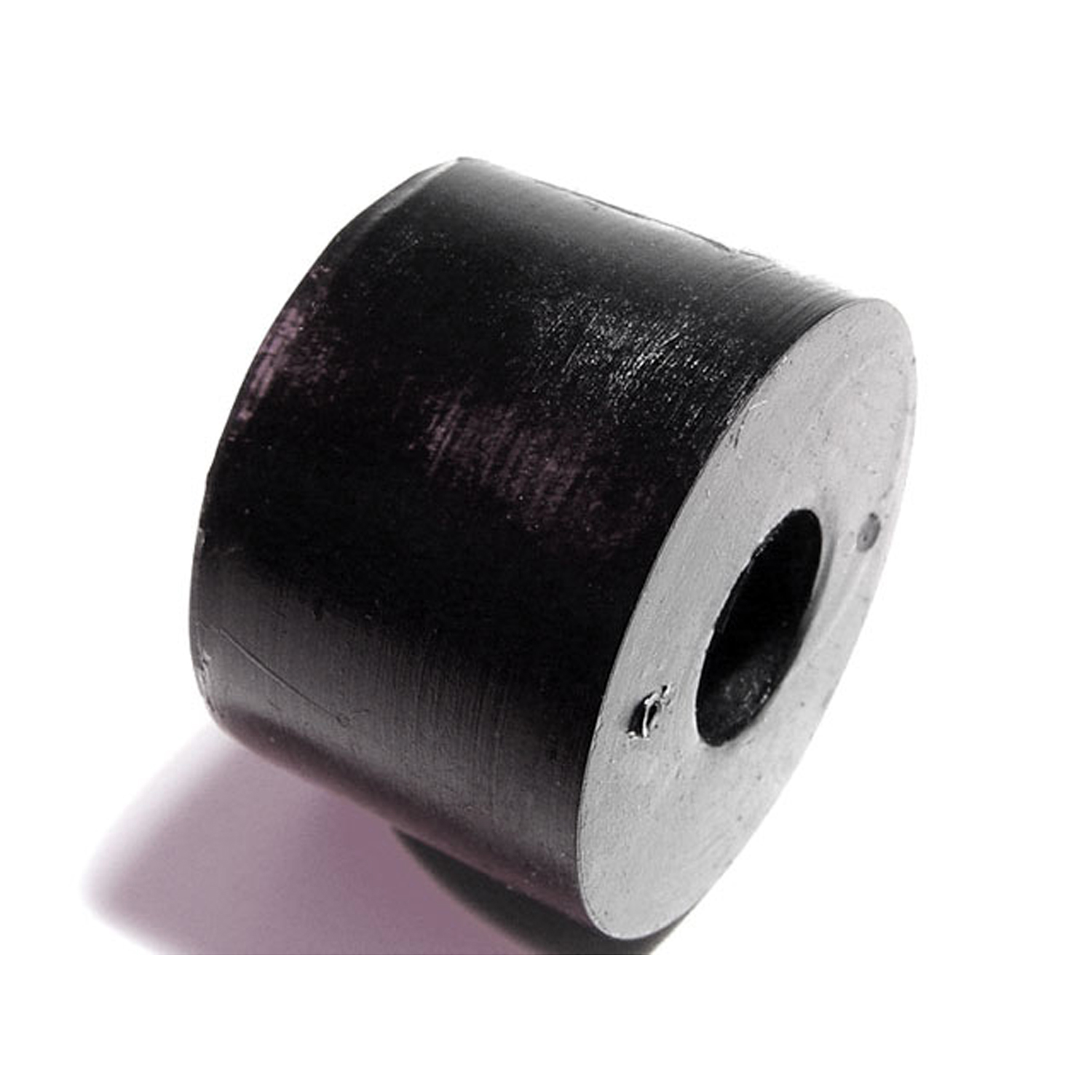 1950 Studebaker Champion Shock Absorber Grommet. 1" bottom O.D., 5/8" high-BN 13Shock Absorber Grommet. 1" bottom O.D., 5/8" high., with 3/8" I.D. Each
1950 Studebaker Champion Shock Absorber Grommet. 1" bottom O.D., 5/8" high-BN 13Shock Absorber Grommet. 1" bottom O.D., 5/8" high., with 3/8" I.D. Each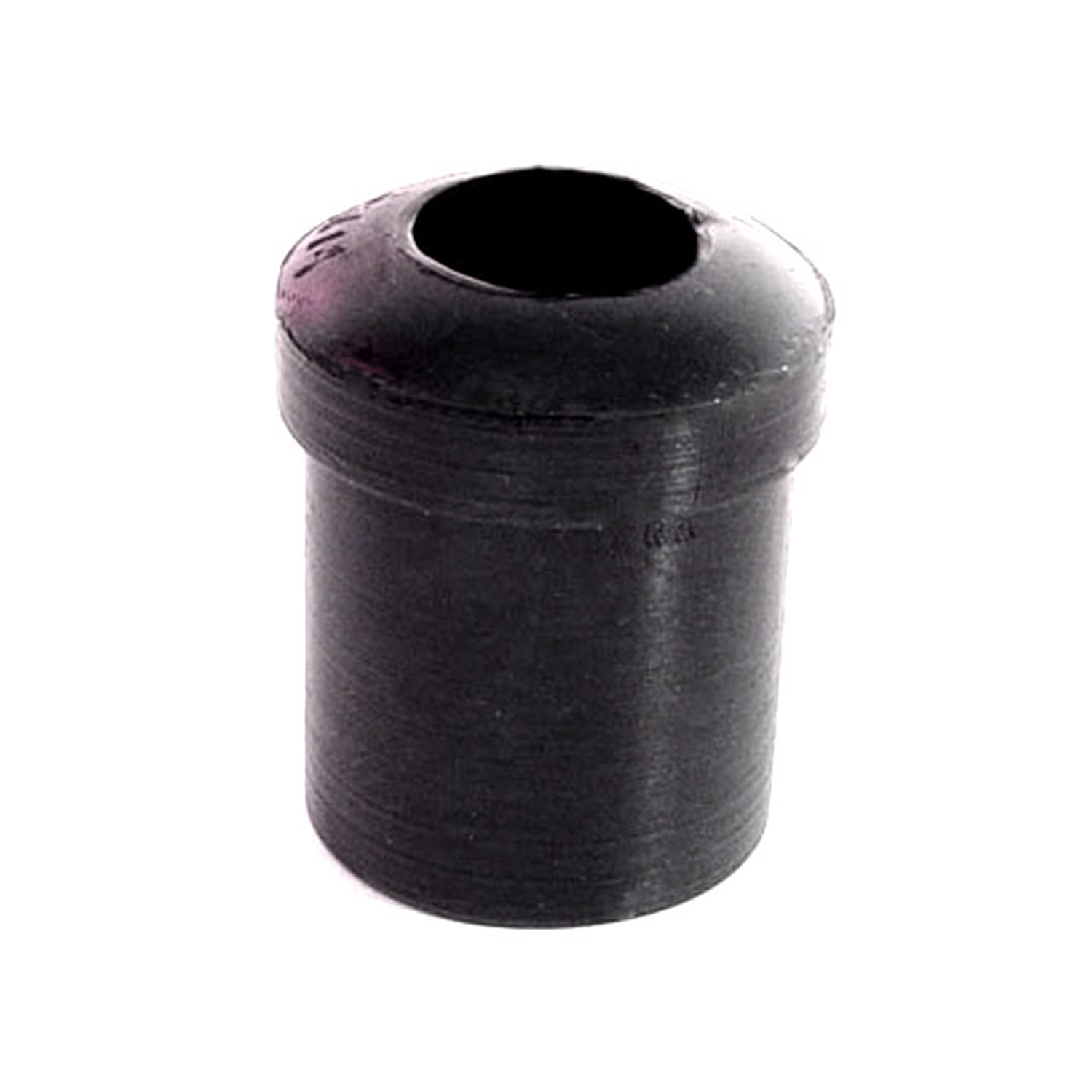 1950 Studebaker Champion Spring and Shackle Bushing. 1-1/16" bottom O.D-BN 14Spring and Shackle Bushing. 1-1/16" bottom O.D. X 1-1/2" high, with 5/8" I.D. Each
1950 Studebaker Champion Spring and Shackle Bushing. 1-1/16" bottom O.D-BN 14Spring and Shackle Bushing. 1-1/16" bottom O.D. X 1-1/2" high, with 5/8" I.D. Each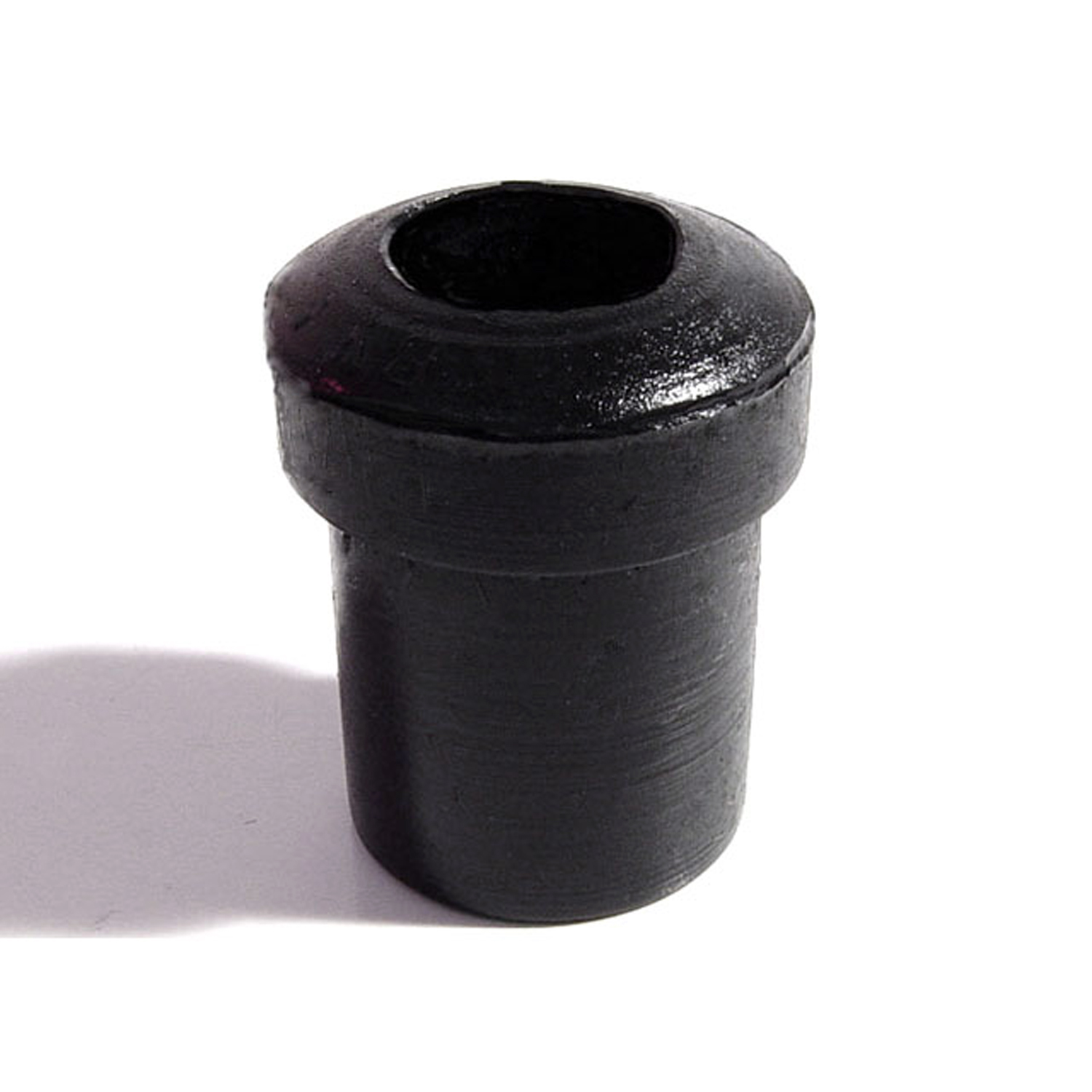 1950 Studebaker Champion Spring and Shackle Bushing. 7/8" bottom O.D-BN 16Spring and Shackle Bushing. 7/8" bottom O.D. X 1-1/8" high, with 1/2" I.D. Each
1950 Studebaker Champion Spring and Shackle Bushing. 7/8" bottom O.D-BN 16Spring and Shackle Bushing. 7/8" bottom O.D. X 1-1/8" high, with 1/2" I.D. Each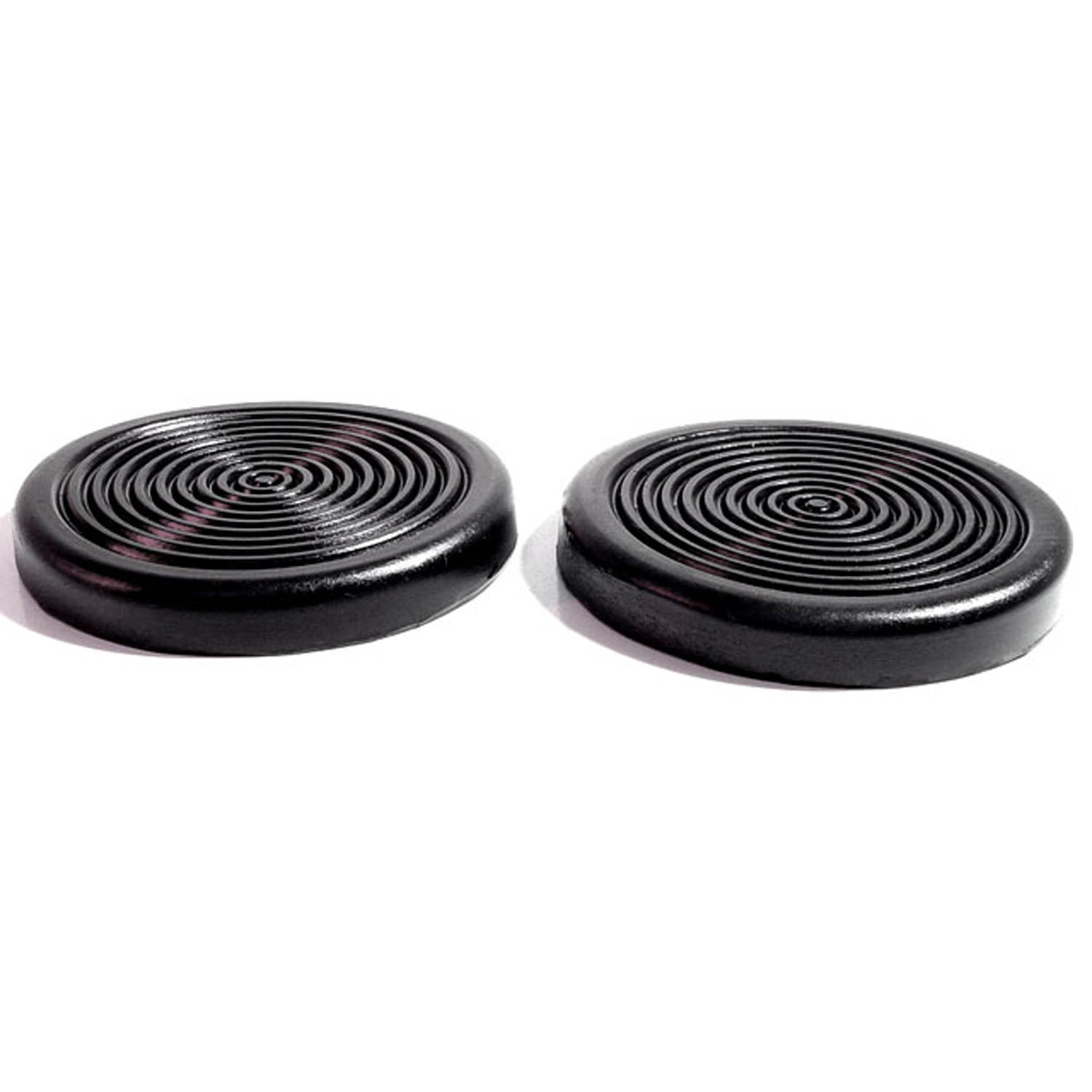 1950 Studebaker Champion Clutch and Brake Pedal Pads. 3" Diameter. Pair-CB 81Clutch and Brake Pedal Pads. 3" Diameter. Pair
1950 Studebaker Champion Clutch and Brake Pedal Pads. 3" Diameter. Pair-CB 81Clutch and Brake Pedal Pads. 3" Diameter. Pair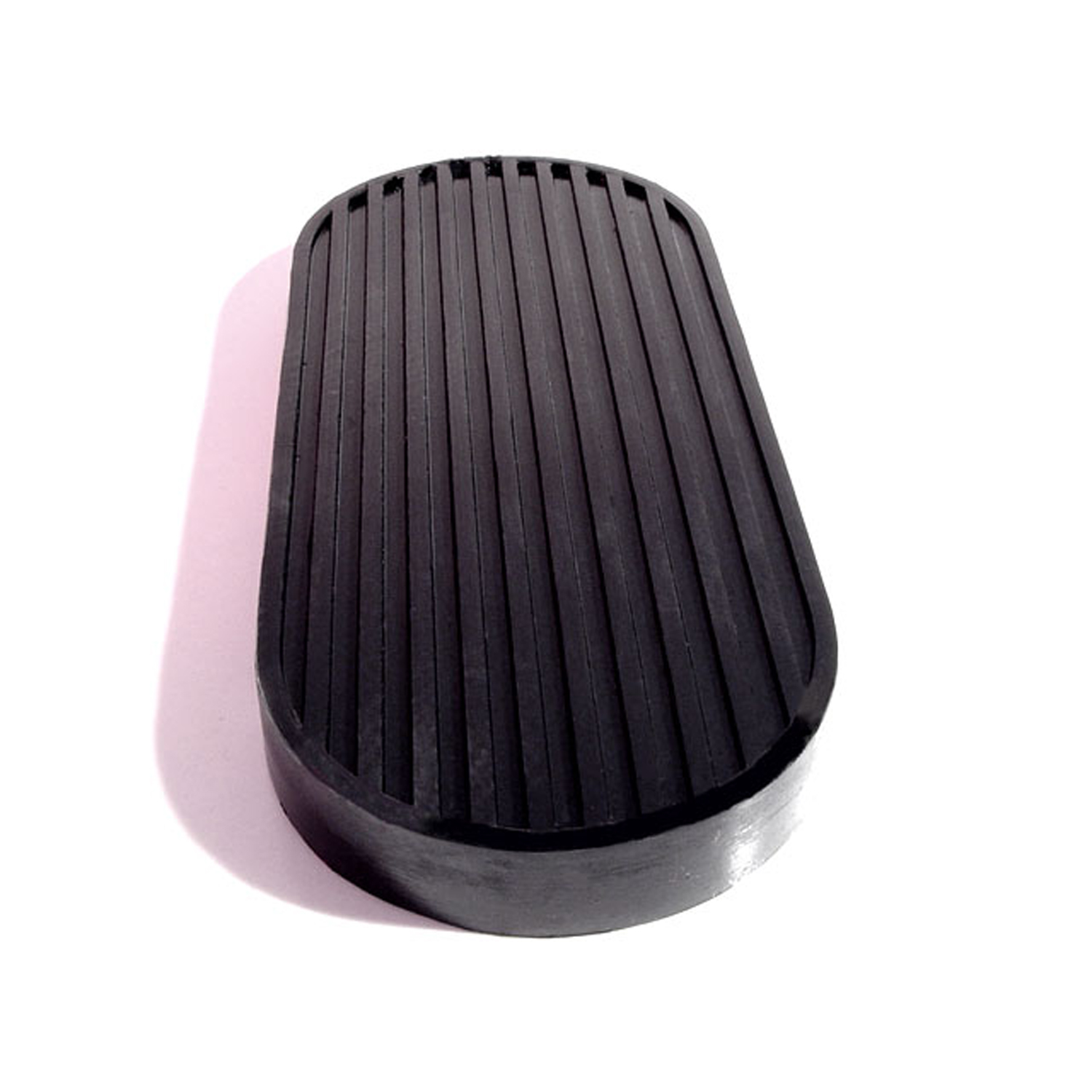 1950 Studebaker Champion Brake Pedal Pad. For models with automatic transmission-CB 87Brake Pedal Pad. For models with automatic transmission. 3" wide X 7-1/8" long. Each
1950 Studebaker Champion Brake Pedal Pad. For models with automatic transmission-CB 87Brake Pedal Pad. For models with automatic transmission. 3" wide X 7-1/8" long. Each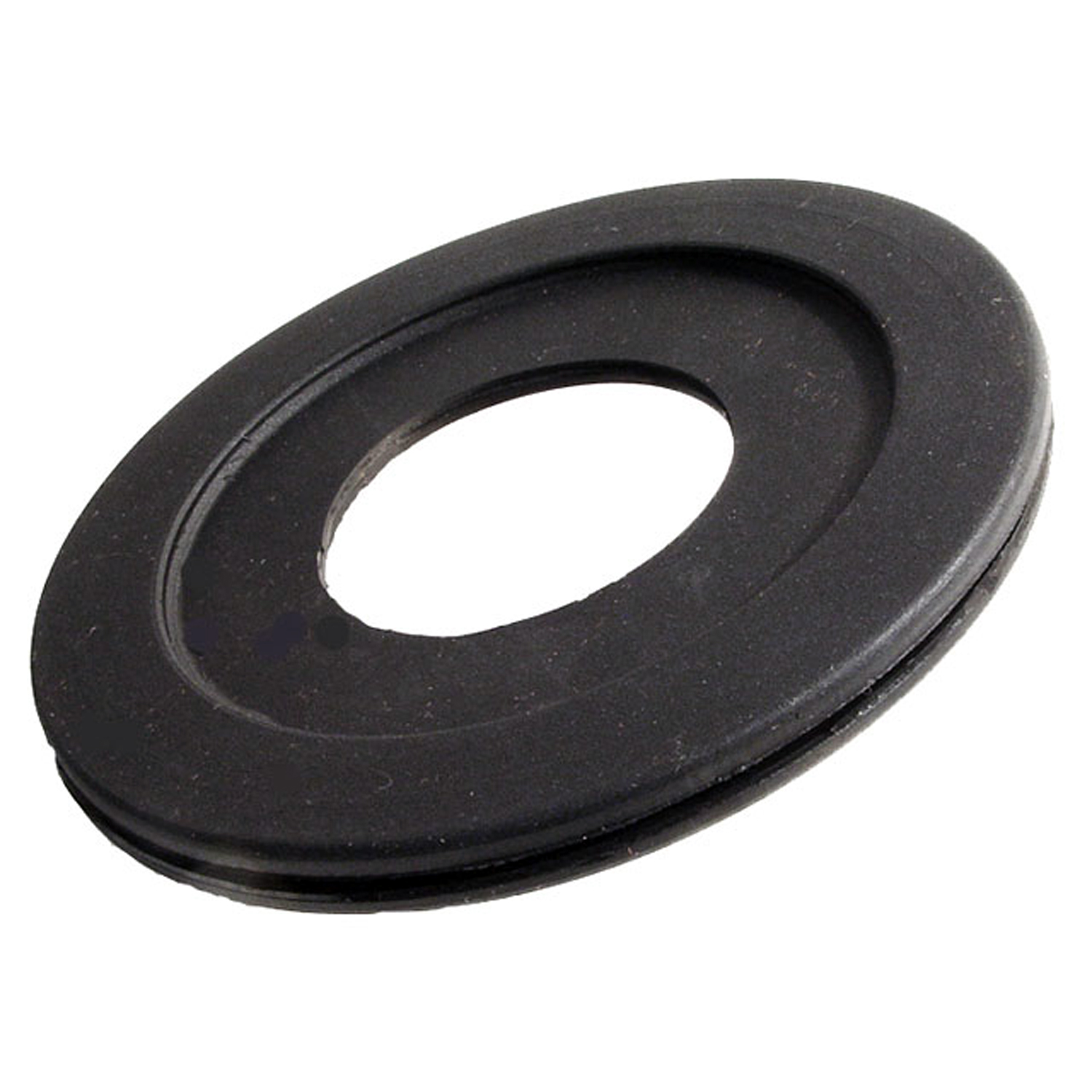 1950 Studebaker Champion Gas Filler Grommet. 1-3/4" I.D., 4-3/8" O.D. Each-GF 31Gas Filler Grommet. 1-3/4" I.D., 4-3/8" O.D. Each
1950 Studebaker Champion Gas Filler Grommet. 1-3/4" I.D., 4-3/8" O.D. Each-GF 31Gas Filler Grommet. 1-3/4" I.D., 4-3/8" O.D. Each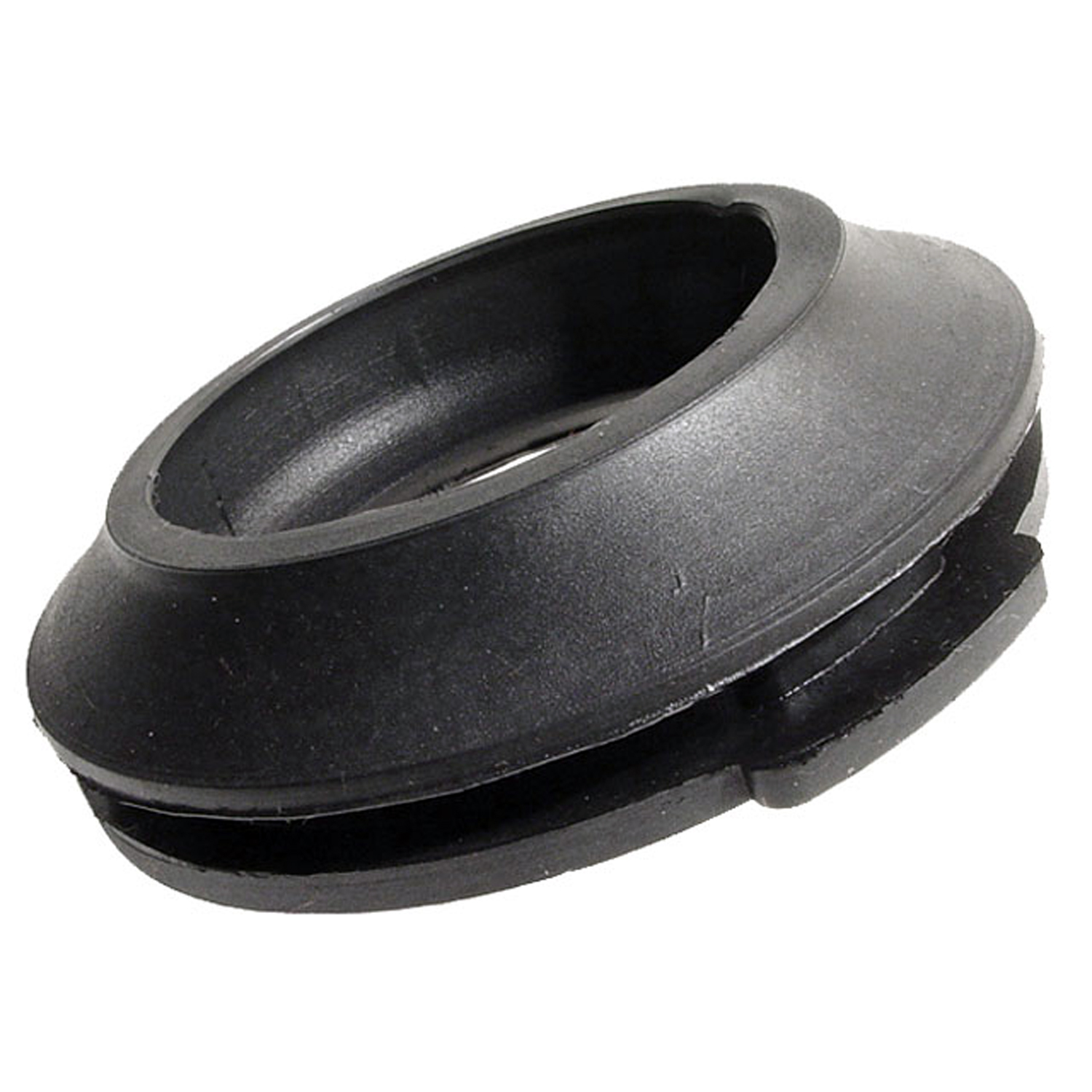 1950 Studebaker Champion Gas Filler Grommet. Perfect reproduction. Top 2-1/16" I.D-GF 45Gas Filler Grommet. Perfect reproduction. Top 2-1/16" I.D., 3-7/16" O.D. Each
1950 Studebaker Champion Gas Filler Grommet. Perfect reproduction. Top 2-1/16" I.D-GF 45Gas Filler Grommet. Perfect reproduction. Top 2-1/16" I.D., 3-7/16" O.D. Each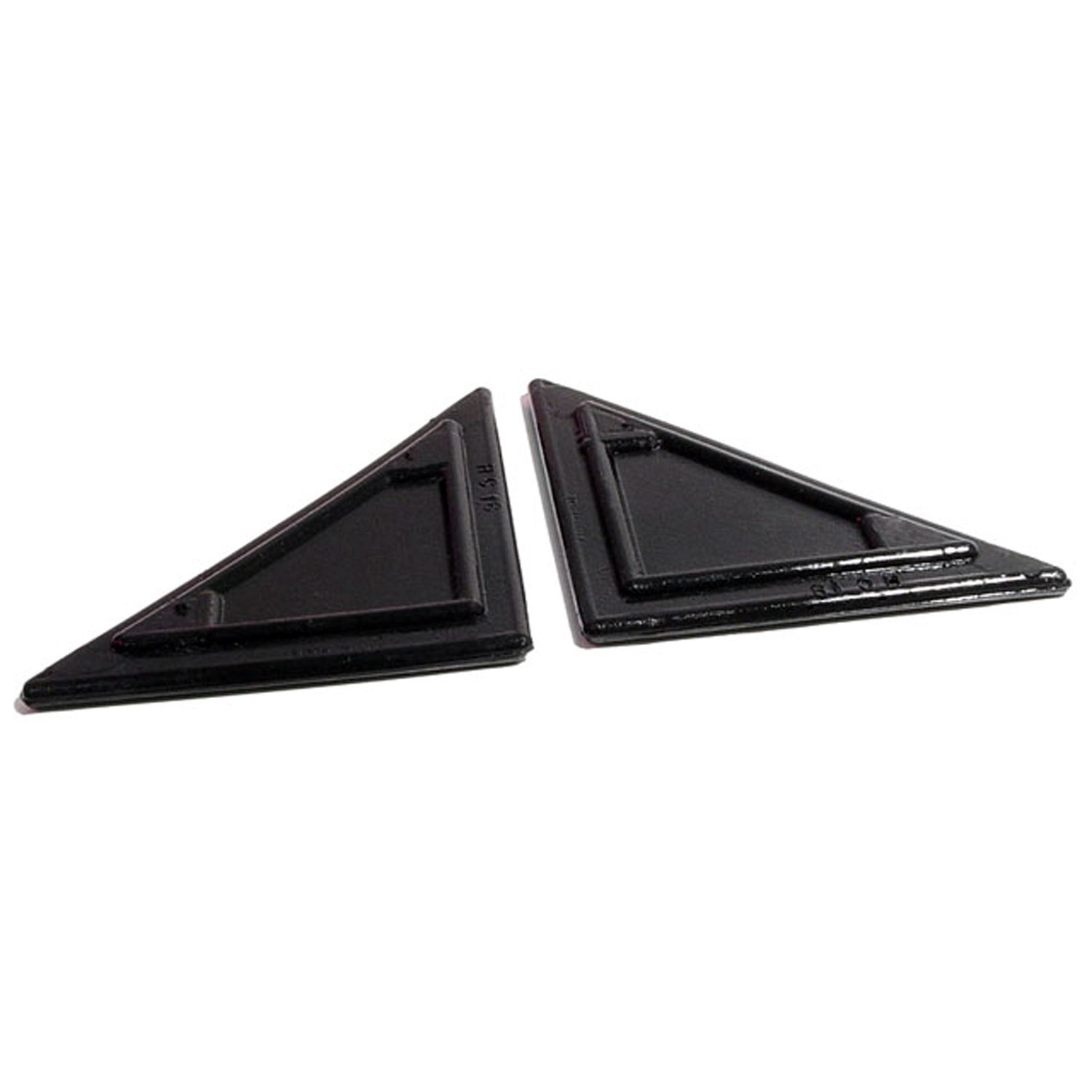 1950 Studebaker Champion Hood Corners. Original design. 2-3/4" wide. Pair-HC 18Hood Corners. Original design. 2-3/4" wide. Pair
1950 Studebaker Champion Hood Corners. Original design. 2-3/4" wide. Pair-HC 18Hood Corners. Original design. 2-3/4" wide. Pair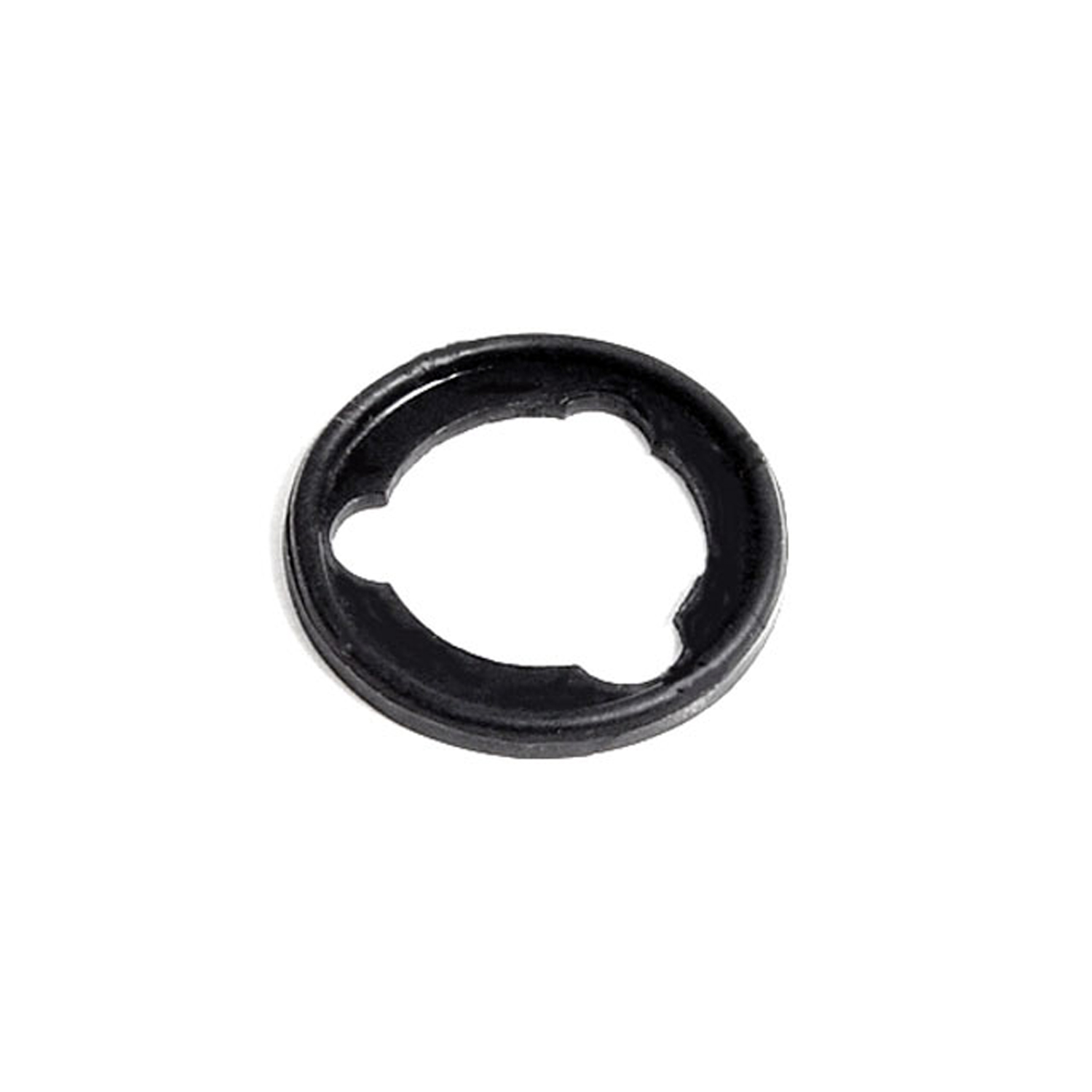 1950 Studebaker Champion Door Lock Pad. 1-1/8" O.D. Each-MP 979Door Lock Pad. 1-1/8" O.D. Each
1950 Studebaker Champion Door Lock Pad. 1-1/8" O.D. Each-MP 979Door Lock Pad. 1-1/8" O.D. Each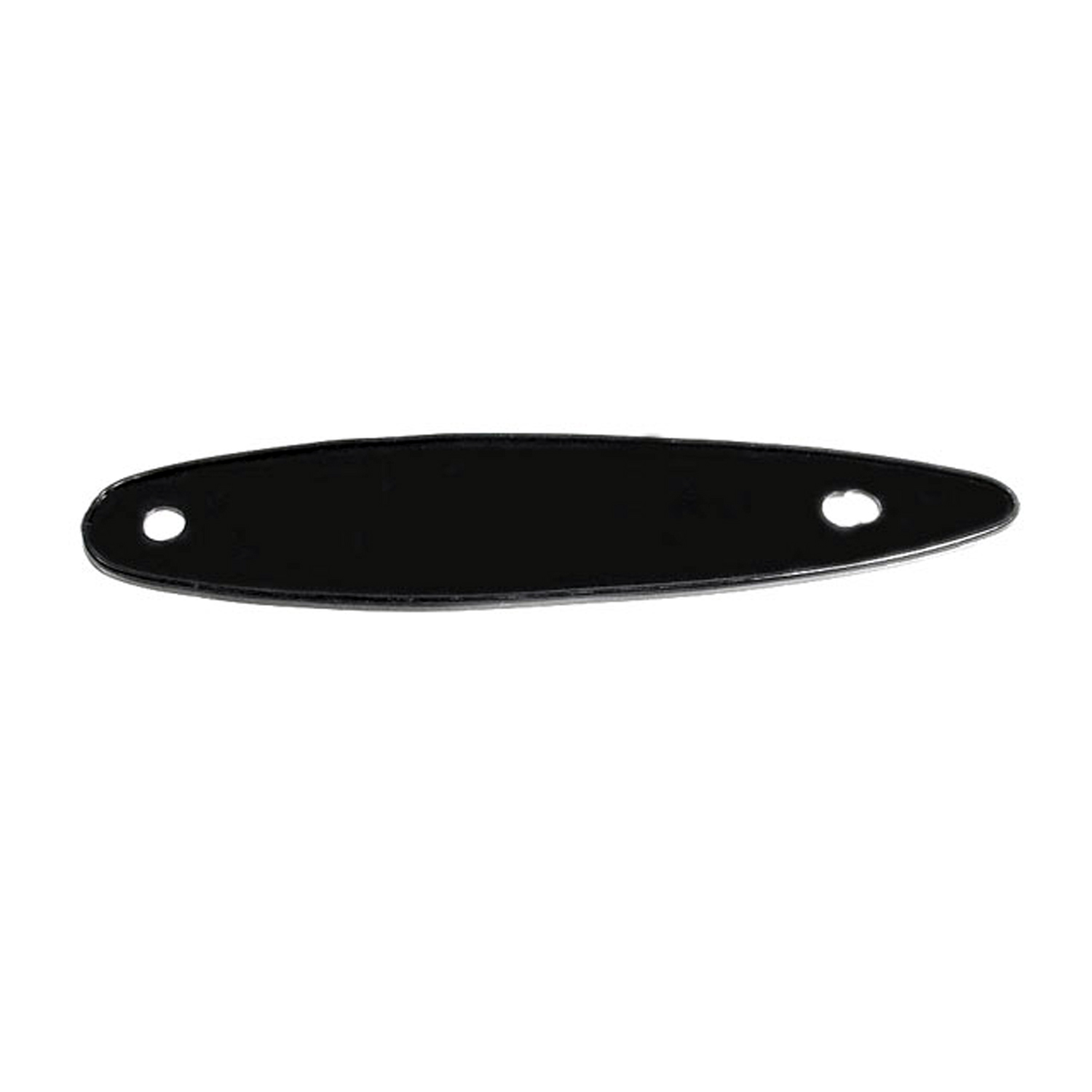 1950 Studebaker Champion Mirror Pad. 1-5/8" wide X 7-3/8" long. Each-MP 979-BMirror Pad. 1-5/8" wide X 7-3/8" long. Each
1950 Studebaker Champion Mirror Pad. 1-5/8" wide X 7-3/8" long. Each-MP 979-BMirror Pad. 1-5/8" wide X 7-3/8" long. Each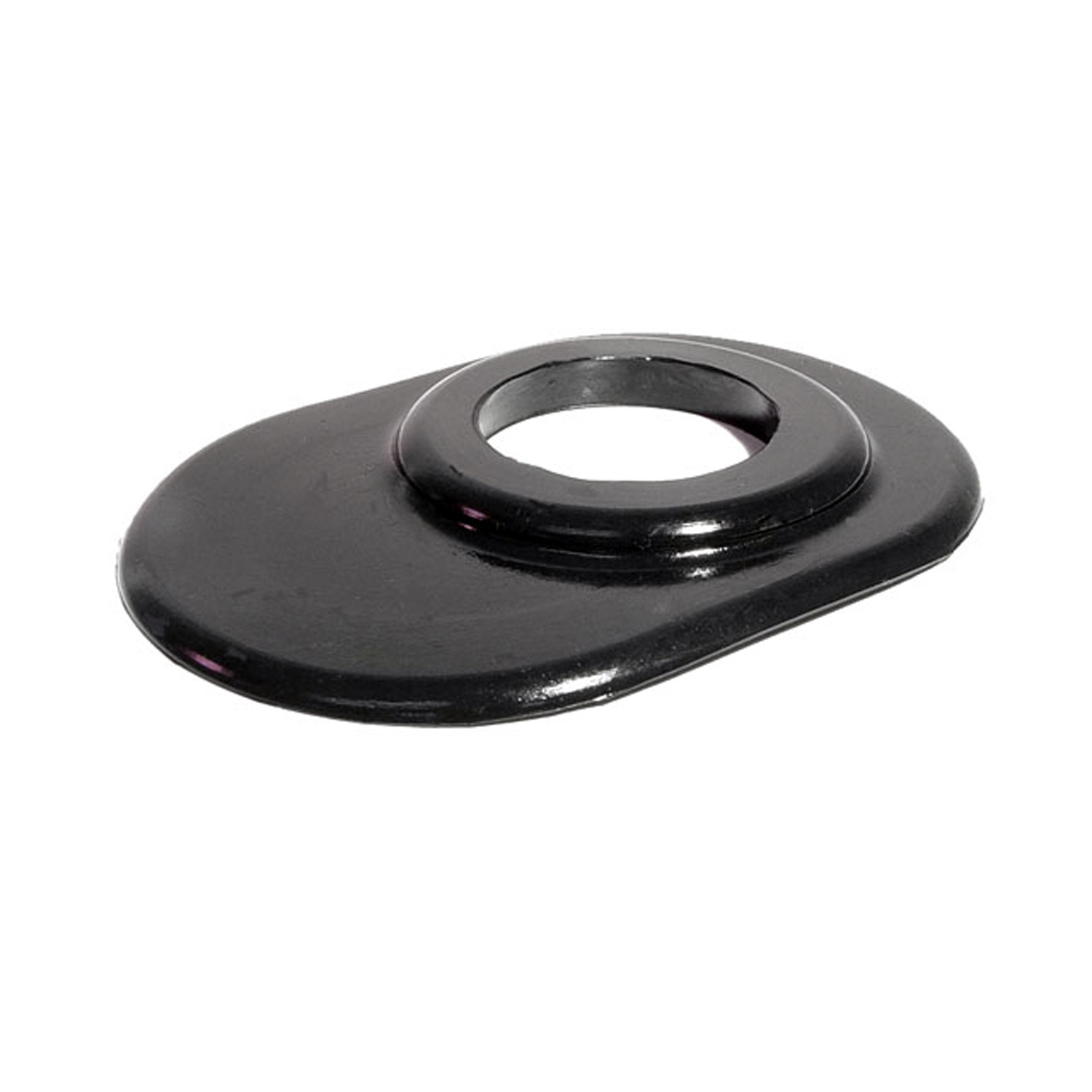 1950 Studebaker Champion Steering Column Grommet. For 3-speed models. Each-SC 24-ASteering Column Grommet. For 3-speed models. Each
1950 Studebaker Champion Steering Column Grommet. For 3-speed models. Each-SC 24-ASteering Column Grommet. For 3-speed models. Each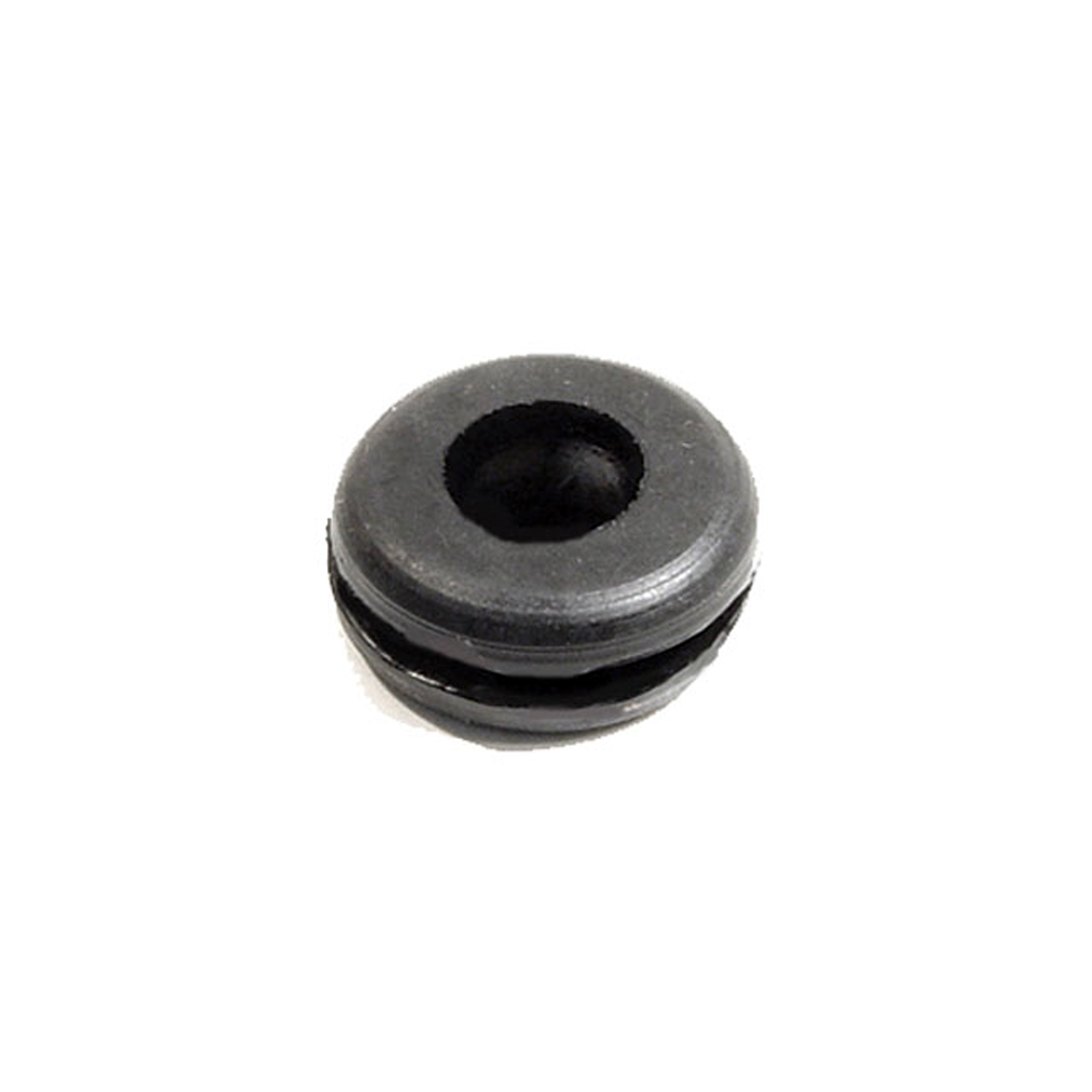 1950 Studebaker Champion Headlight & Tail-Light Wire Grommet. 3/8" I.D., 7/8" O.D-SM 13-AHeadlight & Tail-Light Wire Grommet. 3/8" I.D., 7/8" O.D. Each
1950 Studebaker Champion Headlight & Tail-Light Wire Grommet. 3/8" I.D., 7/8" O.D-SM 13-AHeadlight & Tail-Light Wire Grommet. 3/8" I.D., 7/8" O.D. Each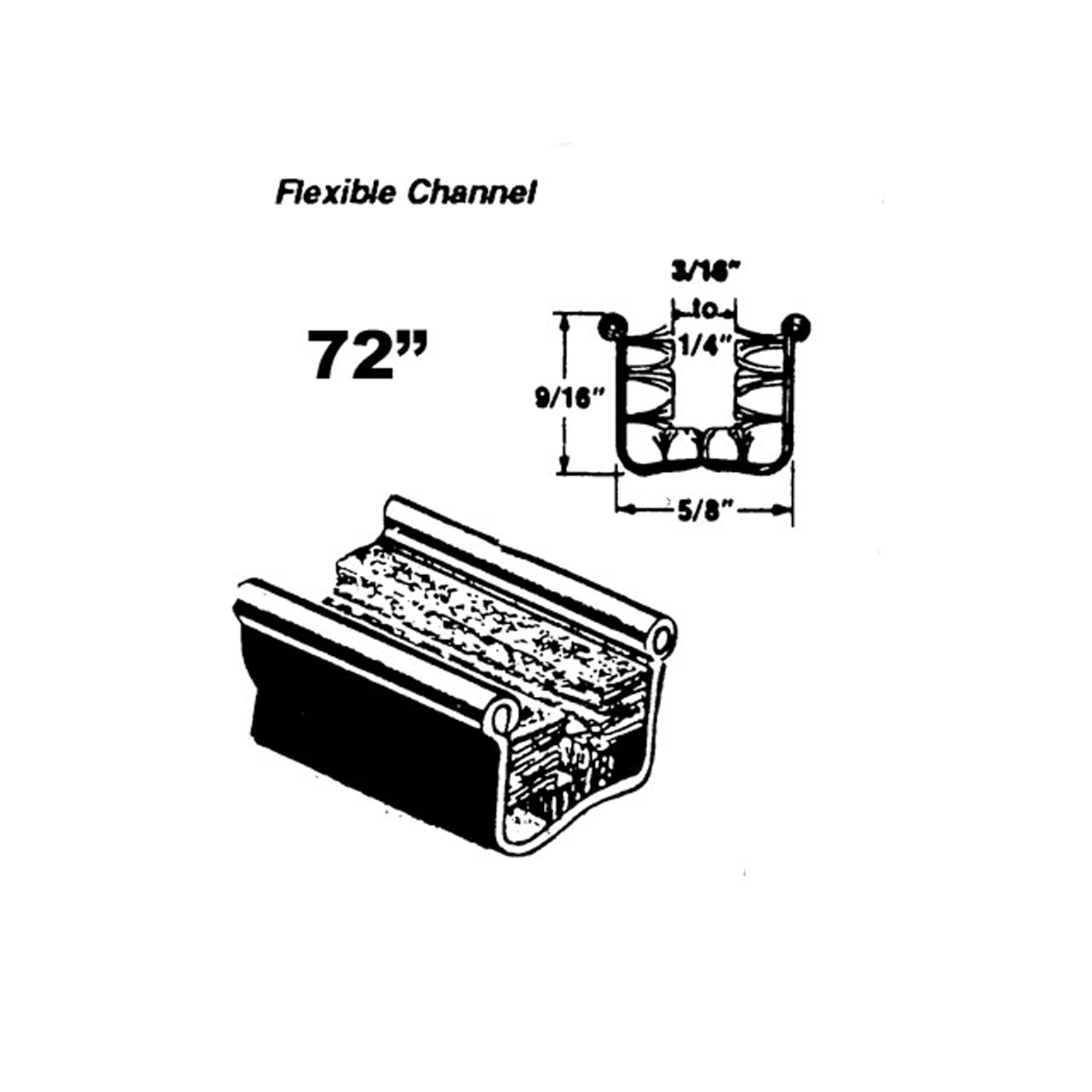 1950 Studebaker Champion Flexible glass-run channel-WC 11-72Flexible glass-run channel. Mohair lined, cloth covered with stainless steel bead. Used on side windows. 72 in. long. Each. NOTE: $20 special shipping charge applies for domestic orders. Call or email for overseas shipping costs. Part can be sectioned in two equal lengths to reduce overseas shipping costs.
1950 Studebaker Champion Flexible glass-run channel-WC 11-72Flexible glass-run channel. Mohair lined, cloth covered with stainless steel bead. Used on side windows. 72 in. long. Each. NOTE: $20 special shipping charge applies for domestic orders. Call or email for overseas shipping costs. Part can be sectioned in two equal lengths to reduce overseas shipping costs.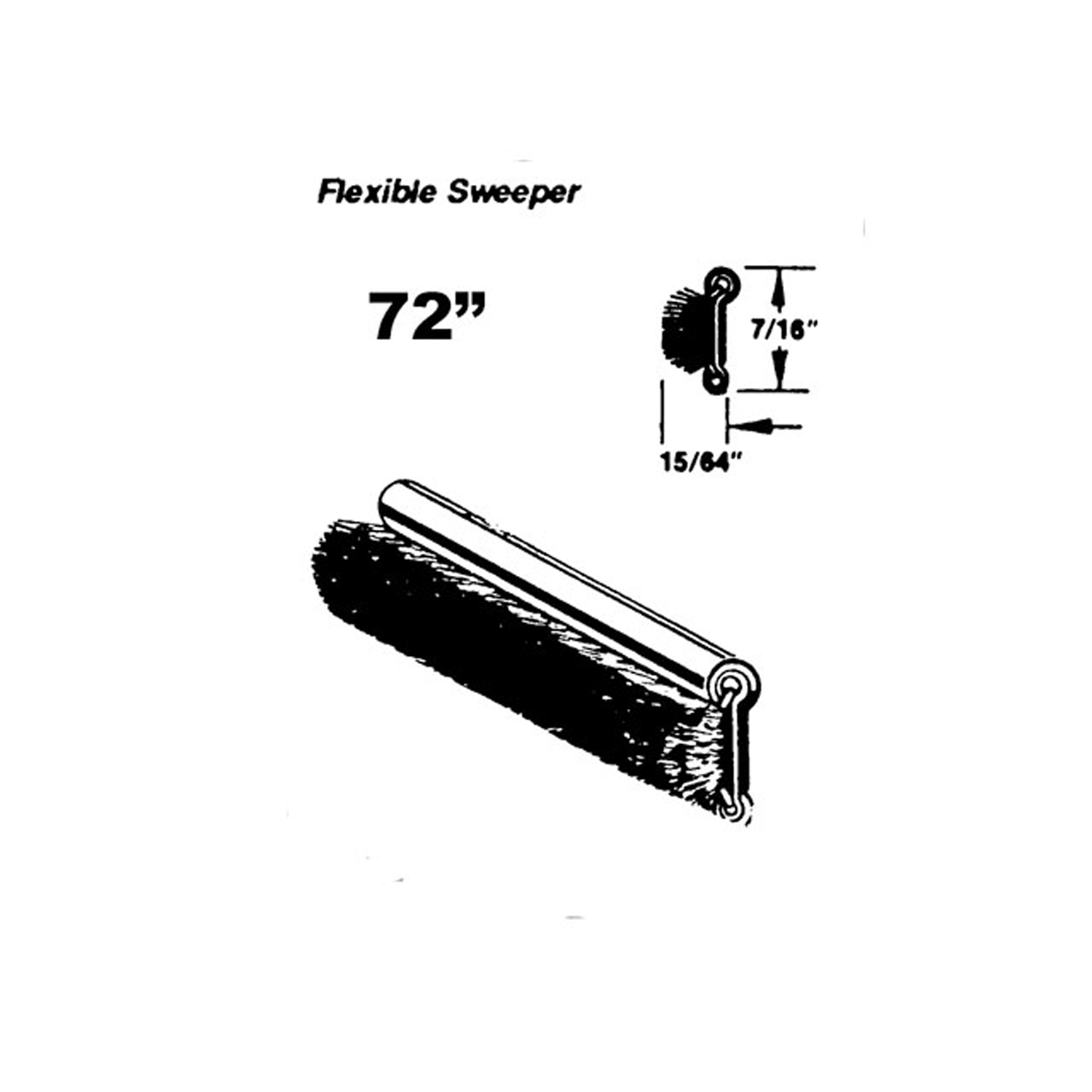 1950 Studebaker Champion Flexible sweeper. Made with stainless steel bead-WC 8-72Flexible sweeper. Made with stainless steel bead. Used on inner and outer beltlines. Also forms easily for use with sliding quarter windows. 72 in. long. Each. NOTE: $20 special shipping charge applies for domestic orders. Call or email for overseas shipping costs. Part can be sectioned into two equal lengths to reduce overseas shipping costs.
1950 Studebaker Champion Flexible sweeper. Made with stainless steel bead-WC 8-72Flexible sweeper. Made with stainless steel bead. Used on inner and outer beltlines. Also forms easily for use with sliding quarter windows. 72 in. long. Each. NOTE: $20 special shipping charge applies for domestic orders. Call or email for overseas shipping costs. Part can be sectioned into two equal lengths to reduce overseas shipping costs.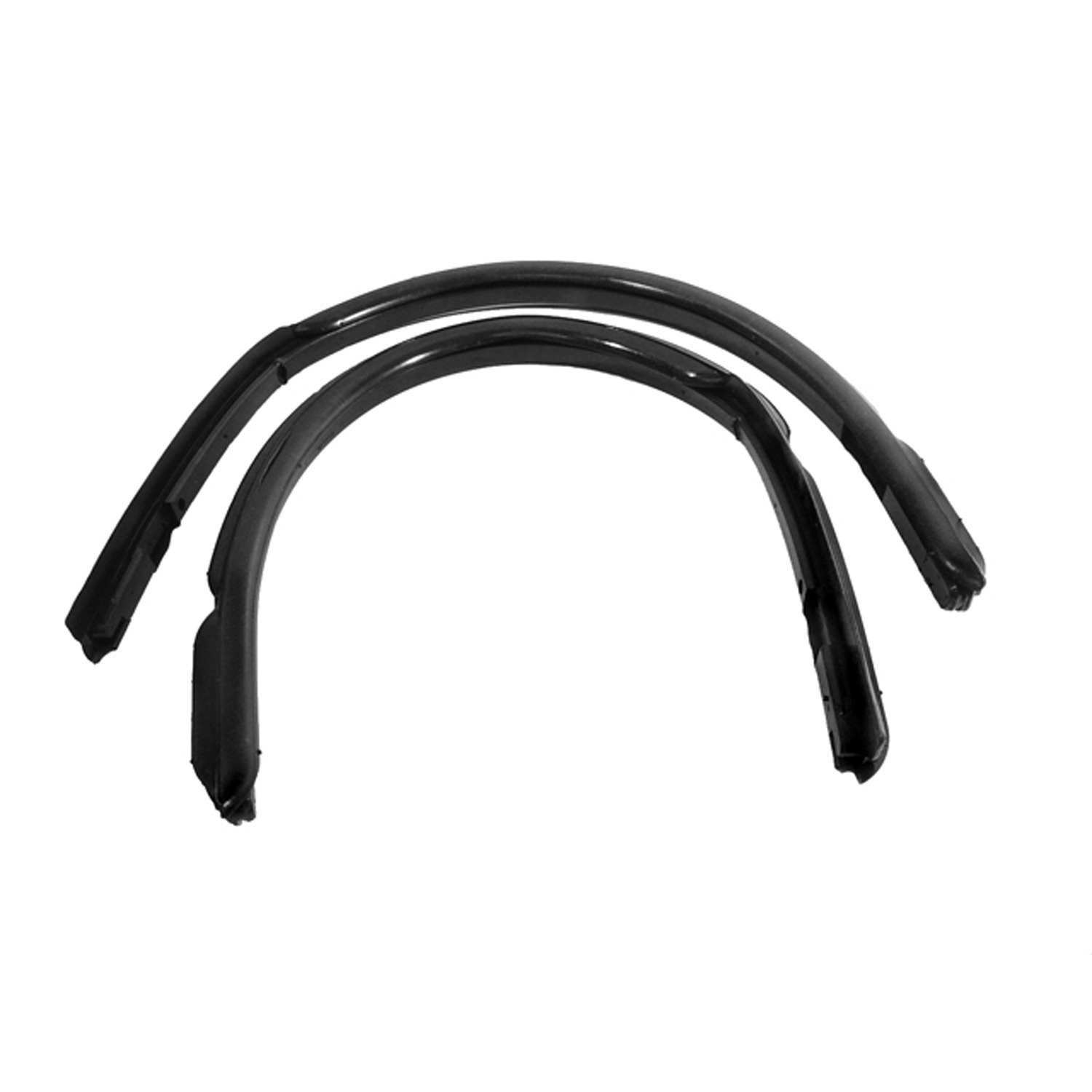 1950 Studebaker Champion Front Vent Window Seals-WR 9400Front Vent Window Seals. For all sedans '47-'50, for 2-door sedans '51-'52. Pair
1950 Studebaker Champion Front Vent Window Seals-WR 9400Front Vent Window Seals. For all sedans '47-'50, for 2-door sedans '51-'52. Pair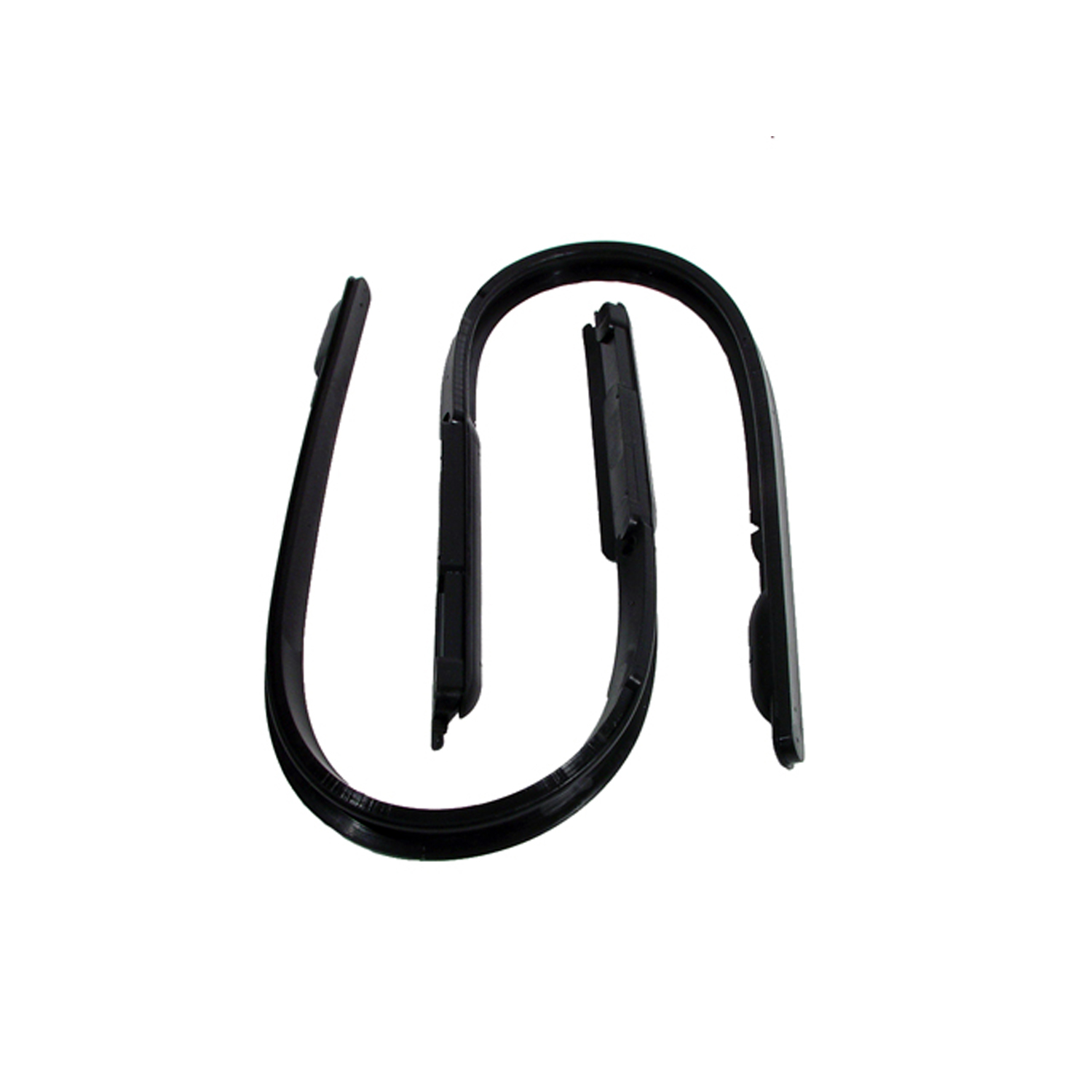 1950 Studebaker Champion Front Vent Window Seals, for Convertibles-WR 9403Front Vent Window Seals, for Convertibles. 28-1/4" long each. Pair R&L
1950 Studebaker Champion Front Vent Window Seals, for Convertibles-WR 9403Front Vent Window Seals, for Convertibles. 28-1/4" long each. Pair R&LWhy Choose Metro?
For over 100 years, Metro Moulded Parts has been the pinnacle of quality in classic car restoration parts. Our commitment to precision and authenticity in every component ensures a perfect fit and an OEM-level appearance.
- Expert Craftsmanship & Quality: Each part is a testament to our dedication to reliability and perfection, crafted from original designs and thoroughly tested.
- Advanced Technology: We use cutting-edge techniques to create flawless, long-lasting parts that surpass others in performance.
- SuperSoft Sponge – The Ultimate Door Seal: Not only are our door seals 30% softer than competitors', but they're also guaranteed to never leak. They effectively reduce wind and road noise, enhancing your classic car's comfort and driving experience.
- Proudly American: Our parts are a product of American craftsmanship, made in the USA with a spirit of excellence and heritage.
- Unrivaled Warranty: We back our products with a 30-year industry-leading warranty, a testament to our confidence in their quality.
Join us in preserving the legacy of classic cars with parts that are crafted for perfection, not just made.

